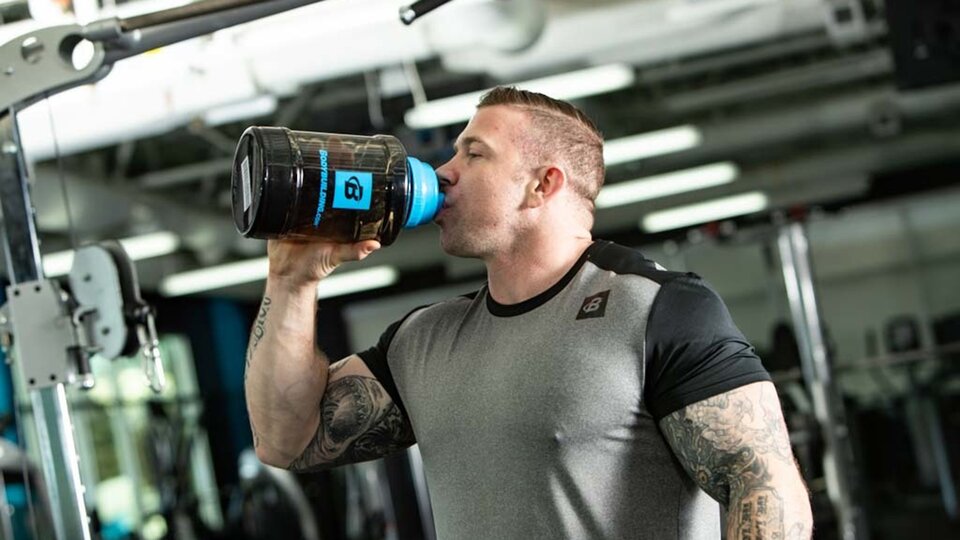Dehydration is one of the most popular practices weight-class athletes and bodybuilders use to help shed the last few pounds. In a quest to make weight or come in with a more defined physique, athletes will restrict water intake, perform cardio in head-to-toe sweats, or melt away in a sauna, all in an effort to sweat out an extra pound or two.
While you may see the number on the scale go down, or a little more definition in your muscles, dehydration can have a significant impact on your performance. If you want your muscles to work properly, you need to keep them hydrated.
Why Is Water So Important?
Water, like oxygen, is essential for life. You can only survive 3-5 days without water! Besides helping to maintain life, water performs several other important roles throughout the human body, including:
- Transporting glucose and oxygen into your muscles.
- Serving as a critical component of your brain, blood, muscles, and bones.
- Aiding digestion of food, helping to convert it to energy you can use.
- Removing metabolic byproducts like carbon dioxide from your hard-working muscles.
- Regulating body temperature, especially during your workouts when your muscles generate 20 times more heat energy than a body at rest.
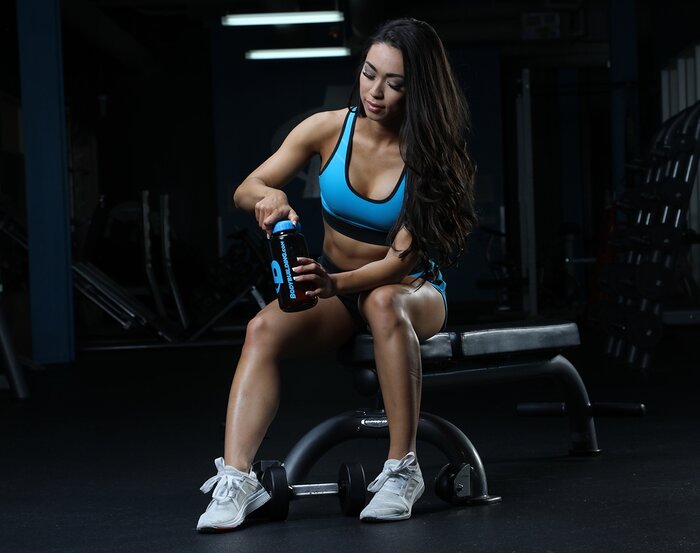
Even with all of its benefits, drinking water and staying hydrated is one of the most overlooked components in fitness. In fact, it’s been reported that more than 40 percent of regular gym-goers are at least partially dehydrated during their workouts.
The bottom line is that dehydration can have a significant effect on performance. Anyone, from runners to lifters, can become dehydrated if fluid loss is greater than fluid intake. It’s as simple as that. And dehydration can lead to reduced performance, headaches, fatigue, and muscle cramps.
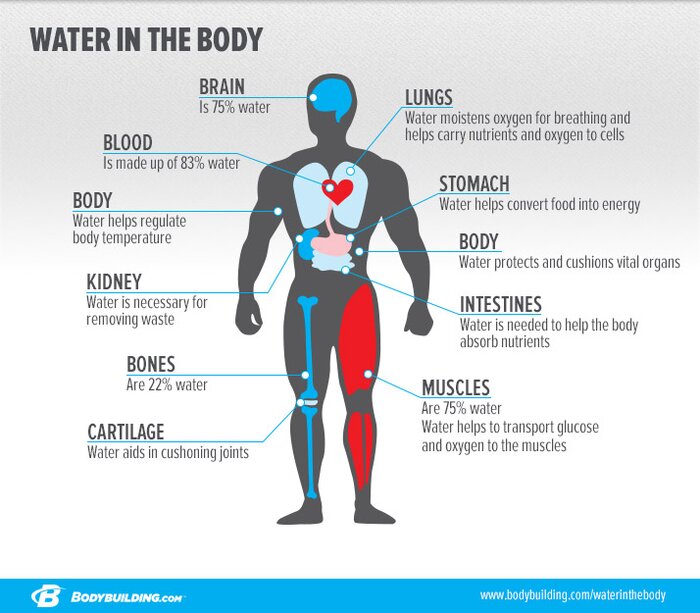
Dehydration can also cost you muscle, since it can negatively impact muscular growth and recovery. Limiting fluid intake has been shown to reduce power output, increase rates of fatigue, and increase the risk for injuries.
A study out of the European Journal of Applied Physiology found that when participants lost 3 percent of their body weight in water, overall resistance exercise performance was impaired. Participants were not able to complete as many repetitions, had higher ratings of perceived exertion, and experienced delayed heart rate recovery, meaning it took longer for their heart rate to return to normal.
Researchers at the University of Connecticut found similar results when they examined the impact of dehydration on resistance training. They found that a 2.5 percent decrease in body weight led to significantly less work being completed during multiple sets of back squats.
How Much Fluid Do You Need?
Just drink eight cups of water a day and you should be fine, right? Not necessarily. The well-known recommendation is a bit outdated and doesn’t take into consideration factors that can increase fluid intake.
Generally speaking, women require about 90 ounces (11 cups) per day, while men should be getting around 125 ounces (16 cups) per day.
How much will depend on how much water you lose via sweat. An easy way to track this is to weigh yourself immediately before your workout and then again right afterward. For every pound of body weight lost, drink an additional 2-3 cups of water.
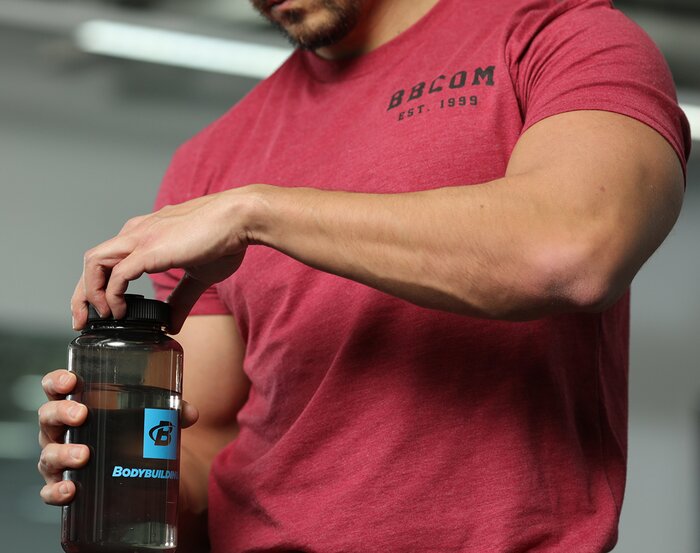
What Other Factors Influence Hydration?
1. Altitude
You don’t feel it when you’re watching a movie on an airplane, but as you climb higher in elevation, the temperature outside drops. While you may sweat less, the lower air pressure and low humidity means evaporation of moisture from your skin is accelerated. Even though you may not notice much sweating, you are still a likely candidate for dehydration.
Higher altitudes will also increase the frequency of bathroom visits. As a means to avoid dangerously elevated blood pH at high elevations, you’ll pee more. Also, in colder temperatures, your body tries to conserve as much heat as possible. Rather than spending energy heating up fluids in your body, your body eliminates as much fluid, in the form of urine, as possible.
2. Climate
Hot or humid climates can increase rates of water loss. When air is humid, sweat can’t evaporate and cool you as quickly as it normally does. This results in a higher body temperature and the need for more fluids. Conversely, in colder climates, there is less moisture in the air, requiring additional intake of fluid to replace fluid loss.
3. Level of Activity
The intensity and duration of your workouts has a positive relationship to fluid needs. The more intense a workout is, and the longer the duration, the more fluid you will need to replace what is lost in sweat. Additionally, the more muscle groups that you use, the more energy your body requires, and thus the more water you will need.
What’s the Easiest Way to Prevent Dehydration?
It sounds totally obvious, but start by drinking fluids when you’re thirsty. Thirst may not be the most reliable indication of hydration status, but it’s a start. The color of your urine also offers insights into your hydration status.
If the urine in your toilet bowl is light to clear, you’re probably all right. If it’s the color of apple juice, it’s time to make a trip to the water cooler and increase your daily fluid intake.
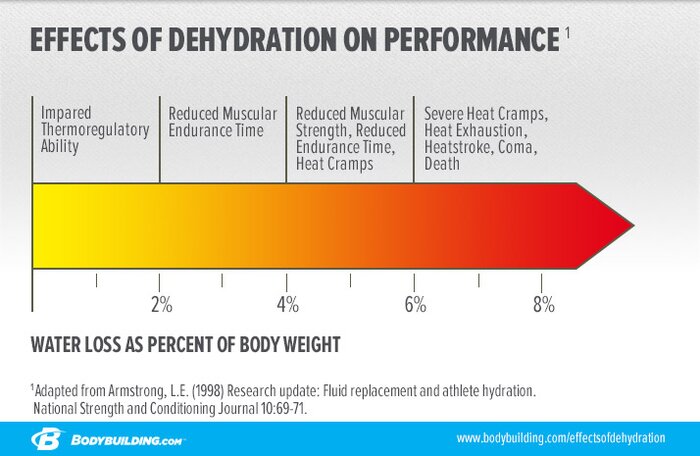
The need for proper hydration becomes even more important when you’re training. Here are some simple guidelines to follow to ensure you’re properly hydrated for your workout:
- 2 to 3 hours before your workout, consume 2-3 cups of fluid; it doesn’t have to be just water! While water is a great choice, you can also sip juice, milk, or some BCAAs.
- During exercise, try to drink about one cup of fluids every 20 minutes or so. If you’re a heavy sweater, you may want to opt for a drink with a higher electrolyte concentration. This amount will increase if you’re training in hot, humid climates, or training at a high intensity.
- Avoid drinking large amounts of water at one time. This can actually slow down the digestion and absorption of fluids, leaving you with a gut full of fluids. Although rare, it is possible to overhydrate, a condition called hyponatremia. Drinking too much water can cause electrolytes (sodium and potassium) to become diluted to dangerous levels. Sports drinks that contain electrolytes, can help prevent this.
Any Final Pointers I Should Bear In Mind?
Water is a perfectly suitable option for workouts that last under an hour and are done in a relatively cool environment. But for longer activities, or workouts done in hot, humid climates, using a beverage with added electrolytes is recommended. Electrolytes, include sodium and potassium, can be lost during exercise through sweat, leading to an increased risk of muscle cramps, fatigue, nausea, and mental confusion.
Adding glycerol to your pre-workout beverage may also help to keep you hydrated during your workouts. It should be stressed that pre-exercise glycerol “hyperhydration” should only be used if the workout is likely to cause a 2 percent loss in body weight. So if you’re just planning on hitting the weights for an hour or so, skip this step.
For those athletes engaging in longer duration activities with limited access to water breaks or training outdoors in extreme temps, try adding glycerol to help maintain hydration status throughout the workout. It’s recommended that you add 0.5 grams of glycerol per pound of body weight to a beverage equal to 0.4 ounces per pound of body weight.
Staying hydrated doesn’t have to be complicated. Stick to the simple guidelines outlined above to experience optimal performance in the gym.
